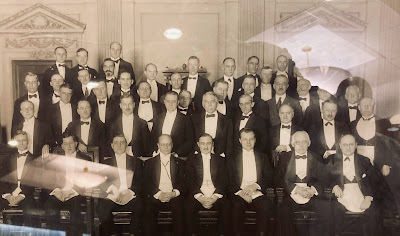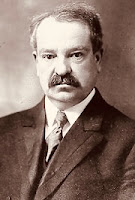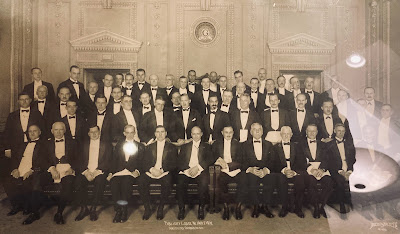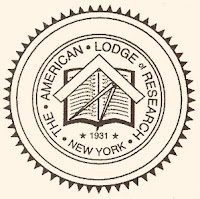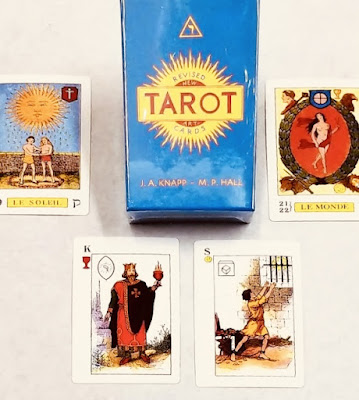Issue 58 (Fall 2022) of The Journal of the Masonic Society has been out several weeks; I just finished reading it, and am delighted to report it is another enlightening and entertaining collection of articles.
Anyone chagrined over Freemasonry’s future ought to behold Antonio Mantica’s “The View from the Starting Line,” in which he inspires with his personal story of seeking the mysteries of the Order. The 28-year-old Fellow Craft of Lexington Lodge 1 in Kentucky likens his Masonic journey to a marathon, which makes sense, and he invokes the story of Eliud Kipchoge, the Kenyan runner who incredibly redefined the marathon, making it an enterprise of less than two hours. It’s not that Mantica wants speed in his travels; instead he appreciates Kipchoge’s ambition to uplift his performance “to another level.” And the runner didn’t train alone. He employed no fewer than forty-one fellow long distance racers to compel him forward—not just to move faster, but to “pass on a message that no human is limited.”
With a similar mindset, our young brother hurdled various personal and cultural potential obstacles in his Masonic path, and he joined the very excellent Lexington Lodge, happy to discover he had been accepted by “a group of respectful men…who listened, comprehended, and met me on the level.”
While at this stage of Masonic development, any Fellow Craft is justified in being a receptor of good and wholesome instruction, but this brother both desires Light and intends to reflect it. “I also see the opportunity to offer my own experiences as a helping hand to my brothers in Freemasonry,” he writes. “As a ten-year student of physics, I cannot help but make the analogy of laser light, where light bounces back and forth off mirrors inside of a ruby cube, giving energy to nearby atoms until they have enough energy to light themselves, causing a coherent beam of red light to radiate from the apparatus.” Fiat lux rubrum, my brother.
Pennsylvania’s Seth Anthony is back, this time delivering a brief story about the New York City locus of both the Cerneau Rite and the Ancient and Primitive Rite of Memphis and Misraim. Mott Hall is no longer standing, but in its time the building became the place where Masons of these orders met. The Mott family was prestigious in the medical profession during the nineteenth century, and Dr. Alexander Mott was Puissant Lieutenant Grand Commander of the Cerneau Rite from the 1870s until his death in 1889. It makes me smile to see a Pennsylvania Mason write of the Cerneau Scottish Rite. (Visit a lodge in the Keystone State, and you learn why.)
Another Kentucky Mason, W. Bro. Brandon Garrett of Elkhart Lodge 568, also exhibits a scientific mindset and an interest in the Fellow Craft Degree in his “Reality: A Subjective User Experience in the Gateway Interface.”
“We don’t observe our reality. We recreate it,” he says. “Granted, we don’t continuously recreate the entire world every moment, just our panoramic perspective.” Linking this to one aspect of the Five Steps toward the Middle Chamber, Garrett reminds us our senses have their limits. “Reality is much the same [as] a user interface of what we need to deal with while working on a physical plane,” he writes. “The mechanical movements of consciousness, the soul, or even the unseen forces of nature, such as gravity, could be viewed and observed if allowed a glimpse into the running background behind our reality.”
Speaking of reality, Masonic Society Fellow Michael Moran, another Pennsylvanian, in his “Practical Use of Reflection,” explains how his habit of periodically taking off time from work as a university professor informs his growth as a Mason. “Reflection can be enormously helpful to identify what really happened…as opposed to relying on what can be faulty memory,” he says. The difference between reflection and recollection lies in “reviewing accumulated notes and records.” That journalistic practice of taking notes and referring to them later forces one to be honest and avoid the pratfall of remembering the good and suppressing the bad of the past. The goal is to plan for the future, and have vision for it. Moran (also The Journal’s book reviews editor) resolves to continue educating himself in Masonry and also keep encouraging others in their learning. The fraternity is lucky to have him.
Andrew Nechetsky, another Pennsylvanian, of Pen Argyl Lodge 594, reflects on Abraham Lincoln, tying Lincoln’s thoughts on God and man to the Craft’s. Bro. Nechetsky sums up Lincoln’s purported approbation of Freemasonry and his alleged petitioning for the degrees before calling for some symbolic and obviously posthumous making a Mason of the sixteenth president.
Yes, well, continuing with mortality, Bro. Jack Freund of Reynoldsburg Lodge 340 in Ohio, and a 32° Mason, brings his doctoral knowledge of Information Systems to bear in an impressive article that analyzes how death and immortality are regarded in the degrees of the Ancient Accepted Scottish Rite (Northern Masonic Jurisdiction) in his “From Darkness to Light to Darkness Again” near the back of this issue of The Journal.
He ably presents a technically dense subject in plain language, but that doesn’t mean I can summarize it rightly here. But, he zeroes in on twenty-one words conveying ideas of death and immortality to see how the AASR-NMJ rituals reveal those ideas. He’s been a Scottish Rite Mason for more than a decade, and he presents his findings through a half-dozen bar graphs of analyses. He concludes “Through the daily application of the Scottish Rite core values, we can find a path to kindle and fan the flames of that divine spark inside us all.”
My opinion of the NMJ (I call it the Non-Masonic Jurisdiction) differs, but I admire his positivity.
And that’s not all!
The Journal includes a variety of regular features. The President’s Message from New York’s RW Bro. Oscar Alleyne beckons us to muster our fortitude even in our interpersonal relationships “to perhaps face trials and personal persecutions in defense of a just and worthy cause.” From the Editor’s Corner, Michael Poll pulls back the curtain on the inner workings of The Journal, as he celebrates his twenty-fifth issue as Editor in Chief. A newly added item, titled “Masonic Minutiae,” by Second Vice President Mark Robbins, puts questions to you for your research and edification. The Book Reviewers tell us about four recent titles you may want to read. First Vice President Greg Knott’s “Through the Camera’s Lens” takes us to Oklahoma City National Memorial which honors the many deaths of the terrorist bombing of 1995.
No, of course I didn’t forget “Vetus Viginti Septem” by W. Bro. M. Christopher Lee, Master of Butler Lodge 254 in Missouri. The Latin translates to “Old Twenty-Seven,” and this work of creative writing borrows from Scottish Rite. It’s fiction, so I can’t give it away.
Click here to join the Masonic Society and begin receiving The Journal every three months. It’s the best Masonic magazine out there. As you have seen here, it doesn’t only commemorate the fraternity’s history, but it also gives voice to those who think ahead.
I forgot the cover! The front cover photo is by W. Bro. Wayne Dyer, who cast his eyes and camera to the East and shot this photo of the beautiful lodge room in Penarth Masonic Hall in Cardiff, Wales. With a meeting space like this, I don’t know why the Prince of Wales wouldn’t petition one of the lodges, like Windsor 1754.
